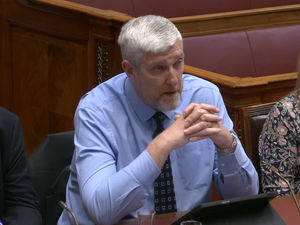Insurers pause or restrict travel cover due to coronavirus
Insurers including LV= and Aviva have reviewed the cover they are offering in the light of the coronavirus outbreak.

Holidaymakers are being advised to read the terms of their travel policies closely as insurers pause or restrict the cover they are offering to new customers due to coronavirus.
Insurers have been making cuts to travel cover or temporarily pulling it altogether for new customers due to the exceptional circumstances.
Martin Lewis, founder of MoneySavingExpert.com, said: “This is something we’ve been expecting. We’ve already seen some insurers stop offering packages like ‘travel disruption’ protection, which is crucial for coronavirus.
“And this is likely to get worse as the foreseeability of the need to claim increases.”
Mr Lewis said he always cautions people to have decent travel insurance as soon as they book.
Mr Lewis continued: “Yet not all packages are equal – most will cover you if the Foreign Office advises against travel, but few will cover you if, for example, the country won’t allow you in.”
Insurance giant Aviva said that following a review of its travel insurance, it has decided to adjust its cover to reflect the current risks posed by coronavirus.
A statement from Aviva said this means that while new Aviva direct travel insurance customers can still buy its core travel insurance, they will not be able to select add-on cover for “travel disruption” or “airspace closure”.
Aviva has also paused its single-trip direct travel insurance for new customers travelling to Italy due to coronavirus.
Existing customers who have already bought cover are unaffected by the new restrictions.
A statement from Aviva said: “Insurance is designed to provide cover for unforeseen and unexpected events and is priced on this basis.
“The outbreak of the coronavirus means there is an increased likelihood of disruption to people’s travel plans.
“We envisage that these decisions, affecting only Aviva’s travel insurance new business, will be temporary actions.”
In a statement on its website, LV= said it has paused the sale of travel insurance to new customers – otherwise it may have had to ramp up its prices.
It said: “We considered a number of different options, such as excluding cover or significantly increasing prices for new customers. We strongly believe this temporary measure of pausing the sale of new policies and focusing on our existing customers is the right decision.”
LV= said there is no change for existing customers who already have a policy and it is still offering renewals.
Some reports have pointed to sharp increases in demand for travel insurance in recent weeks.
Consumer group Which? said that anyone looking to buy travel insurance should shop around and read the terms of their policy closely to ensure that they will be covered in the event of disruption.
Gareth Shaw, head of money at Which? said: “It’s very alarming that LV= have withdrawn the sale of travel insurance and that other providers have also started restricting the policies they offer customers.
“Anyone planning a holiday should get insurance as soon as they book. If you haven’t already booked insurance and are travelling soon, we urge you to get cover immediately from a reputable insurer.
“The Government, insurers and the travel industry must immediately tackle the huge challenge provided by coronavirus, as the industry depends on people having the confidence that they can travel with the knowledge that they will be covered.”
A spokesman for the Association of British Insurers (ABI) said travel insurance remains “widely available”.
He said: “Existing policies remain unaffected. Travel insurance for new customers remains widely available, so people should shop around for the cover that best meets their needs.
“In a competitive insurance market, insurers will be monitoring carefully the fast-moving developments in the coronavirus outbreak, and will keep their position under constant review as the situation develops.
“Insurance is based on assessing the possibility of an event occurring. Insurers will take account of when any risk becomes more of a probability than a possibility, making whatever commercial decisions that they feel are prudent.”





